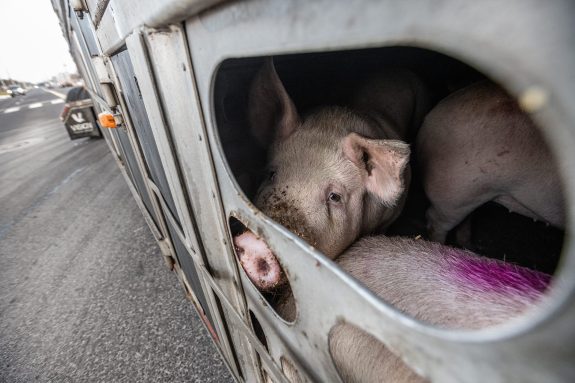As the UK government explores international trade agreements, a coalition of trade groups and animal welfare advocates is sounding the alarm about Canada’s animal welfare standards.
The UK is known for having some of the world’s most comprehensive animal welfare laws. The Trade & Animal Welfare Coalition (TAWC) is a group of organizations working to ensure that UK trade policy doesn’t water down those standards by allowing for unrestricted imports of animal food products from countries with lower standards. As the UK discusses joining Canada and other countries in the Comprehensive and Progressive Agreement for Trans-Pacific Partnership, a TAWC infographic has highlighted just how far behind Canada is—with no legal standards whatsoever for the welfare of farmed animals.
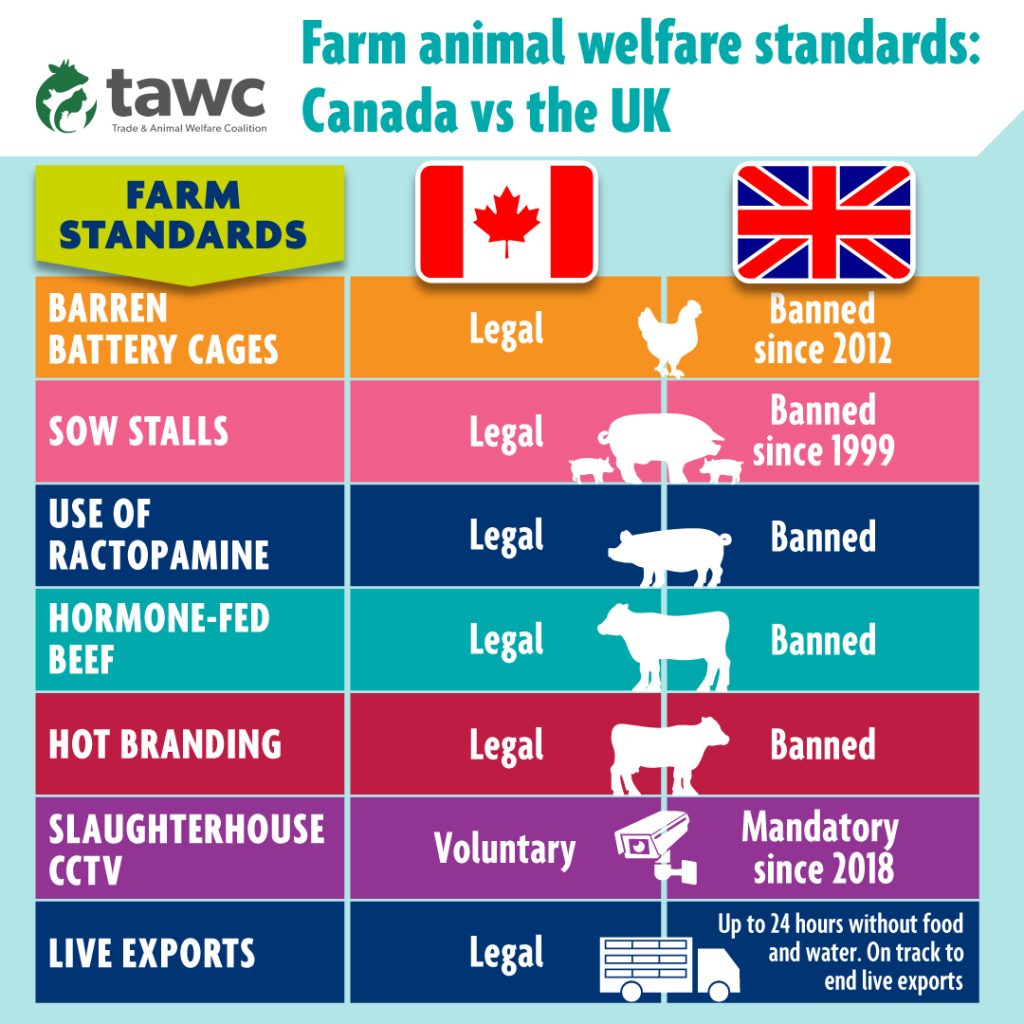
Battery Cages
A startling 83% of hens used to lay eggs in Canada are confined to cages, with most of them inside tiny, wire battery cages. Battery cages are stuffed with hens stacked on top of each other in filthy factory farms, where hens don’t even have enough room to spread their wings. In the US, just 71% of hens live in cages, and in the UK, it’s only 35%. Unlike in the US and EU, not a single Canadian province has banned barren battery cages.
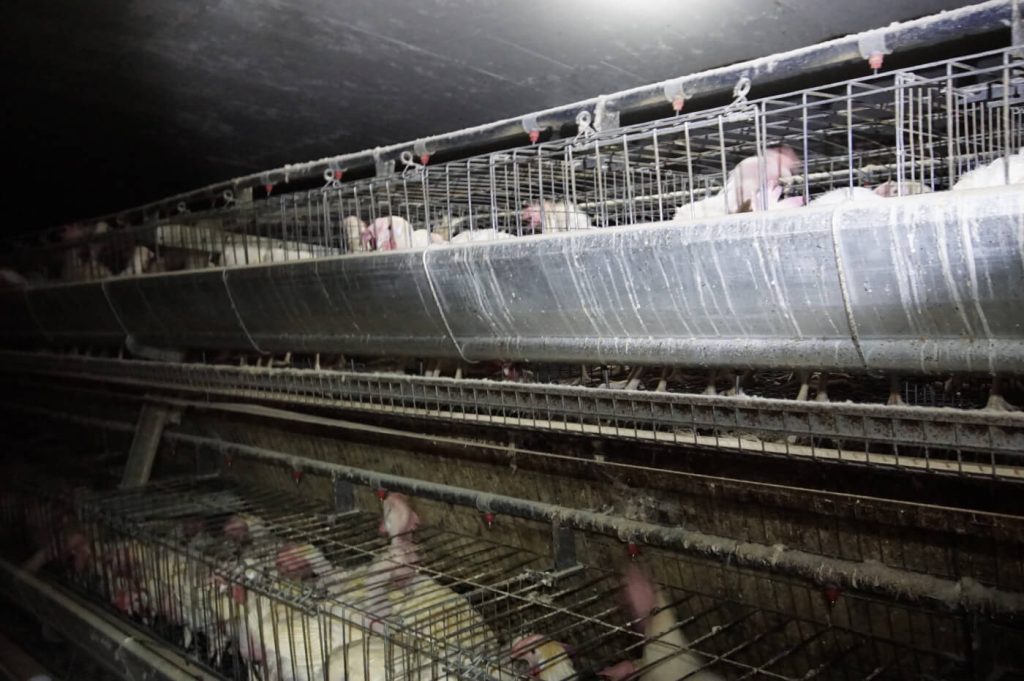
Photo: PETA
As Canada’s largest food retailer, Loblaws has the power to influence the entire industry. Loblaws has recently abandoned its promise that it would only source 100% cage-free eggs by 2025. It will no longer meet this deadline and refuses to share a timeline for ending this horrific suffering of sensitive hens.
Send a message to Loblaws demanding that it keeps its promise to go cage-free by 2025.
Gestation Crates
Gestation crates, otherwise known as sow stalls, were banned in the UK in 1999, but are still standard practice in Canadian pig farming.
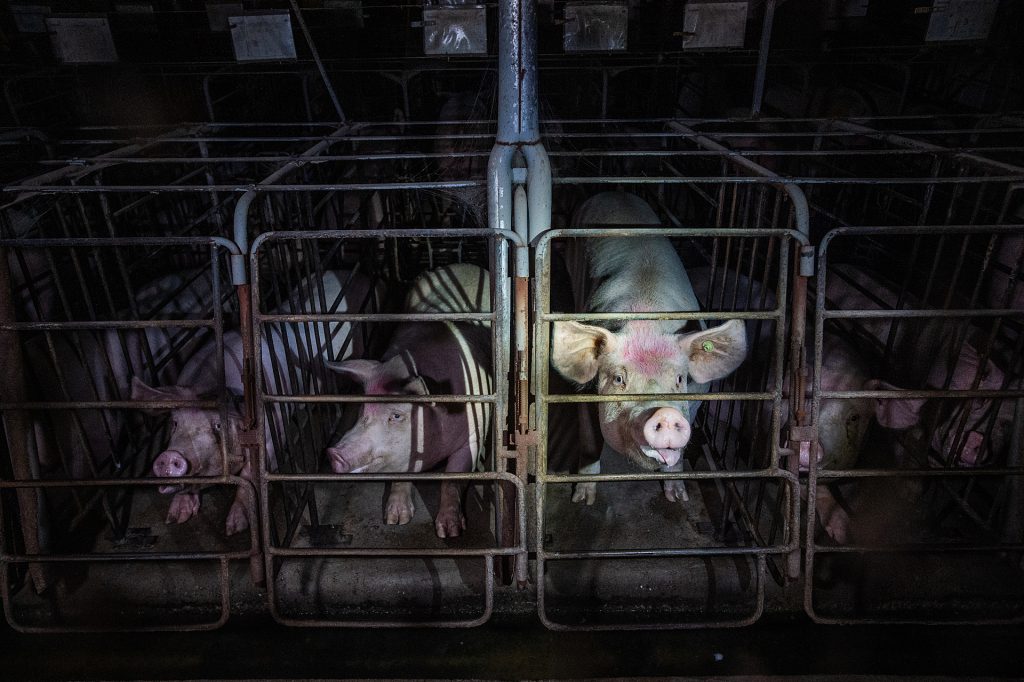
Photo: Jo-Anne McArthur | We Animals Media
Gestation crates confine female breeding pigs during pregnancy so tightly that they cannot even turn around to scratch themselves or take a few steps to stretch their aching bodies. Frequently, pigs develop sores and arthritis due to lack of movement, and over time, muscle atrophy renders them fragile and immobile. The stall floors are hard concrete with slates to allow the passing of urine and feces to an underground cavity. Pigs breathe the toxic fumes of their own excrement, often causing respiratory illnesses and lung infections. Sows often spend nearly their entire adult lives in crates, as they are kept continually impregnated to maximize profitability.
Join Animal Justice in calling on the federal government to regulate farming, and act swiftly to outlaw gestation crates.
Slaughterhouse Cameras
Hidden camera footage released by Animal Justice last month exposed the first-ever look into a small-scale, local Canadian slaughterhouse. From large operations to small-scale slaughterhouses, the abuse of animals behind closed doors should not be allowed to continue.
We’re calling on Canada to join countries like England and Scotland in mandating that cameras be installed in slaughterhouses. By broadcasting directly to the internet so people can see the truth about slaughter with their own eyes, cameras in slaughterhouses would help encourage compliance with the existing regulations at abattoirs and reduce excessive animal suffering, and give the public a chance to see the reality of what animals endure on the way to their plates
Live Export & Animal Transport
The much-anticipated 2019 changes to Canada’s outdated animal transport laws are still a nightmare for animals.
The Canadian Food Inspection Agency ignored tens of thousands of Canadians who demanded strict time limits on transport, and protections for animals against transport during frigid cold and sweltering heat. Instead of protecting animals, the government let well-funded meat, dairy, and egg industry lobbyists dictate the rules to protect their profits.
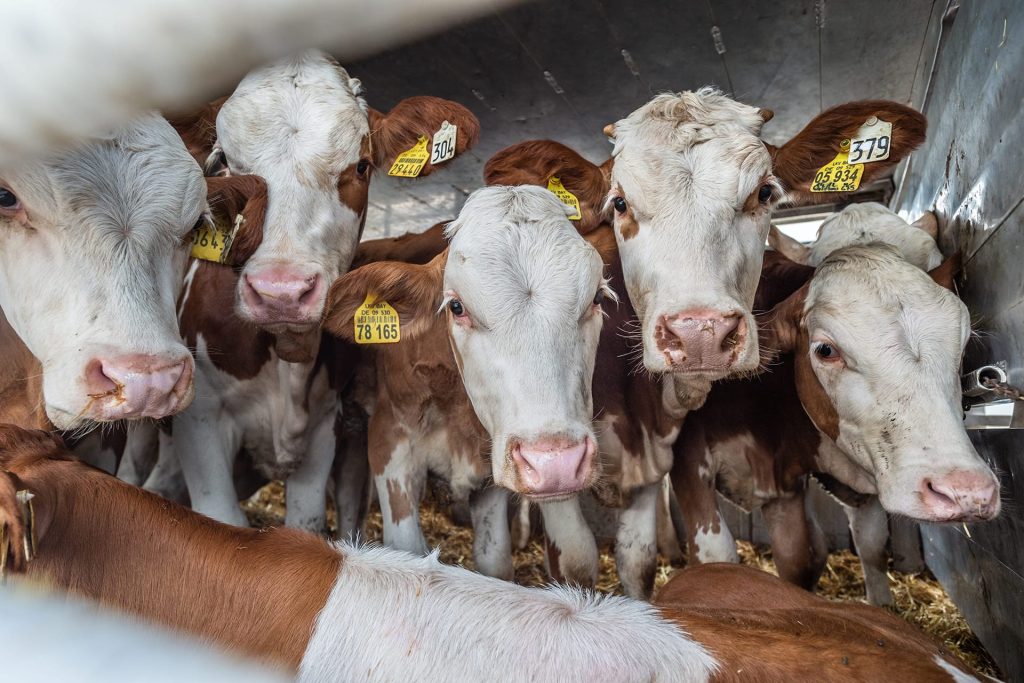
Under the new rules, animals can still be transported for days without food, water, or rest. There are no temperature restrictions on transport, so animals continue to be trucked in open-sided vehicles, exposed to all temperature extremes. Join Animal Justice and take action to tell your Member of Parliament that you believe it’s unacceptable for animals to endure horrific suffering during transport.
Standards for animals on Canadian farms have fallen so far behind other countries, as animals live and die with few legal protections. It’s time for change. Animal Justice’s mission is to overhaul the legal system to better reflect our country’s values of compassion and justice for all. There are no federal laws protecting animals on farms. We are calling on the federal government to regulate conditions on farms, proactively inspect and investigate farms and slaughterhouses, and prosecute law-breakers.

